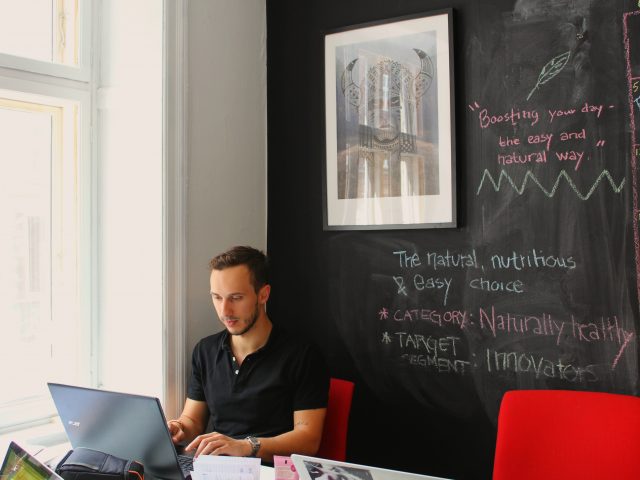“It looks like CBS is not interested in China anymore”

Asian Research Centre at CBS is no longer capable of paying the membership fee to The Nordic Centre at Fudan University - so now what? (Photo: Shutterstock)
Researchers and students are left with fewer options to collaborate with and get connections in China. This is owing to CBS backing out of a collaboration with 25 Nordic universities at the Fudan University in Shanghai, argues President from CBS Students and CBS professor. But is the collaboration worth fighting for at all?
The Nordic Centre in Shanghai will, by the beginning of next year, be reduced from 25 to 24 universities, as CBS is withdrawing its membership.
“I’m surprised, baffled, that CBS of all Danish member universities, is the one that wants to withdraw. It’s all about business in Shanghai and CBS is a business school, so CBS should be there first,” says Poul Duedahl, associate professor at the Faculty of Social Science at Aalborg University and the board member representing Denmark at the Nordic Centre in Shanghai.
The aim of the research center is to assist researchers by providing them with office spaces, conferences to attend, a network of researchers in China, and Chinese contacts – which are generally difficult to obtain.
They will think that we are not interested in China anymore
Ari Kokko, Professor at CBS
But the Nordic Centre is not just a tool for researchers, it also creates opportunities for CBS students to go on exchange, take part in summer courses in China, and collaborate with or get involved with internships for companies in Shanghai. Poul Duedahl finds it hard to understand why saving on 7,400 euros justifies pulling out from a city, which is “a global hot-spot.”
What will China think?
Ever since the 1990s, CBS has closely collaborated with four institutions – Nordic Centre in Shanghai, Nordic Centre in Delhi, Danish-Chinese Business Forum, and Nordic Institute of Asian Studies – that were involved with research and education about Asia. These collaborations have resulted in closer ties between researchers and students from various Nordic and Asian universities.
However, in March this year, CBS senior management made the decision that the university was no longer in a financial position to support all collaborations.
Ari Kokko, Professor at the Department of International Economics and Management, and Director of Asia Research Centre at CBS, is afraid how the decision will be looked upon in China.
“Our Chinese counterparts will be asking themselves what leaving the institution means, and they will think that we are not interested in China anymore,” says Ari Kokko.
This leaves CBS’ researchers and students with fewer options, argues Thomas Skinnerup Philipsen, President of CBS Students.
“Right now, the discussion is, can we cut some low hanging fruits? It was the idea to achieve administrative efficiency, but what we see now, is that there are no more low hanging fruits. As such, you have to cut back on talent development programs both for researchers and students and that’s a shame,” says Thomas Skinnerup Philipsen, Chairman of CBS Students.
CBS stops paying for memberships
For now, all the other Danish universities will maintain their membership in Shanghai. The newest member to join their ranks will be the University of Lapland in Finland.
But CBS pulls out, because it has a general principle that “membership fees which have CBS wide benefits can be paid centrally. On the other hand, membership fees which have relevance to only one or few departments should be paid locally,” writes Martin Kramer-Jørgensen, Head of Secretariat at CBS in an email to CBS WIRE.
Jens Gammelgaard, the Head of the Department of International Economics and Management, is taking a neutral stance about the decision made by the senior management, but when it comes to the funding of the membership fees which the Asian Research Center is in need of, his opinion is clear.
“INT doesn’t want to pay the membership fee, since I – as the head of department – think that I have to administer the grant we are given to support the employed researchers work, teaching, and communication. Furthermore, the outcome of the Nordic Research Center is primarily focused on students,” writes Jens Gammelgaard, Head of Department of International Economics and Management at CBS, in an email to CBS WIRE.
Savings ran out
The Asia Research Centre (ARC) especially took a heavy hit when the cutbacks were introduced. In 2015 and 2016 the budget was cut to half and from this year, ARC has lost all of its budget, explains Ari Kokko.
He adds that ARC managed to continue their collaboration efforts, only by using money that was saved up over years past.
This strategy was successfully implemented, until the inevitable occurred and the funds dried up

Ari Kokko, realizing that ARC’s future ventures with the intrinsic institutions were being threatened by budget cuts, wrote a letter to CBS imploring them to revert back to the way it was before and pay the full sum of the membership fees.
Four months later, he received a reply in which CBS offered to pay for half of the fees. A decision Ari Kokko strongly opposed.
“ARC (Asia Research Center) was not able to convince senior management that the memberships in question had CBS wide benefits, hence ARC and INT (Department of International Ecocomics and Management) were asked to find resources for the membership fees within their own budgets or through external funding,” explains Martin Kramer-Jørgensen to CBS WIRE.
The dilemma
Notably, young researchers benefit from the local resources offered by the Nordic Research Centre, as they can get unique contacts such as other researchers and companies in China. The students on the other hand, get an opportunity to go on exchange and take part in summer schools – this goes both ways.
Withdrawing the membership therefore creates a dilemma, as Thomas Skinnerup Philipsen sees it.
“It’s a real dilemma. Either we let the students take these affordable summer schools in Shanghai and we let our researchers be up to date on matters regarding Chinese and Asian economics, or we can give more feedback on an exam. It’s sort of a lose-lose situation or a zero-sum game, you obviously can’t have both,” says Thomas Skinnerup Philipsen.
An open door
Obviously, the funding of the membership is the big issue here. Neither CBS centrally nor ARC are able to pay for the membership fee, so why can’t it be funded externally?
A lot of research at CBS is funded externally, however, getting money for a membership is a whole different story, explains Ari Kokko:
“Funding for memberships are difficult to get from external sources because they are against overhead costs.”
So, what is to be of ARC and their research effort in China?
“The most important for ARC’s continued effort will be the Danish-Chinese Business Forum and the Nordic Institute of Asian Studies because there, we have big applications for research funding that are currently in the loop. If we drop out of these memberships, we cannot be a part of the research funds,” says Ari Kokko.
Even though it seems, as if the party at the Nordic Research Center is over, Martin Kramer-Jørgensen leaves the door open for the people at ARC.
To the question: Will CBS reconsider paying the membership fee for the Nordic Centre in Shanghai again, Martin Kramer-Jørgensen says:
“The management will reconsider paying if ARC/INT can convince senior management that the memberships have CBS wide benefits.”


































































































































I’ve always been interested in emerging markets and the knowledge spillover through mutual exchange of people and information across emerging and developed markets. A really thoughtfully well balanced piece of article. Good job Mette & the CBS Wire Team.
Is CBS really a business school? Or is it still going to be one?
How could a renowned nordic business school have conceived such poor strategy while the institution endeavors to teach business-related subject to us?
I am glad that you are highlighting the cancellation of the link with China, which strikes me as similar to the recent virtual elimination of all foreign languages at CBS, apart from English for instrumental purposes. And equally short-sighted and narrow-minded, New Public Management at it worst. I know nothing about this scheme, but it needs to be seen as one that should benefit both Nordic countries and China. I taught a two-week PhD course in Shanghai in late 2015, on language policy and language rights, at a different university. The need for Western expertise, not least Nordic expertise, in China is massive, and needs to be seen as a long-term issue of reciprocal value. Opting out to save a modest amount of money is self-defeating and uninformed.
As a full-time Chinese student, who paid more than 90000dkk per year to study at CBS, is shocked finding out that CBS is quitting because it could not afford to pay 55000DKK to be present in China???
How about to attract more Chinese student to study in Denmark, and let China know more about Denmark??
I find this decision appalling. I cannot help to think whether the CBS leadership have ever been to China and know of the enormous cultural barriers that exist between China and Scandinavia. The Nordic Centre helps to break these barriers down and creates a pathway for CBS researchers and students to study, work with and understand the worlds second biggest economy. Supporting it – with what to CBS must be pocket money – is invaluable in this effort.
To thousands of current and future CBS students, cutting ties with Nordic Centre also cuts direct access to, understanding for and appreciation of an incredibly diverse country, a culture and business environment which to most Scandinavians is just completely, gobsmackingly bewildering. For my own part, I have lived and studied in variously places (including Latino countries and the US) far from Scandinavia, but have always found I could easily grip language and understand/appreciate cultural contexts on my own. Arriving in China, for the first time I felt truly (and helplessly) ‘foreign’.
Had it not been for the Nordic Centre and the program I attended there, I had left as frustrated and clueless as when I arrived. In fact, I wonder if I had ever gone in the first place, had it not been for the Nordic Centre partnership with CBS.
Through their program they aided me and fellow students to decipher the Chinese culture and business environment through academic lectures by Nordic and local professors, talks by local company guest speakers, language crash course, company visits, overnight excursions etc.
As a result, I have become much more internationally minded, competitive and ‘complete’ as a CBS graduate. I really hope CBS will re-consider this decision, so future CBS students will be able to acquire the skillset and cultural appreciation to work in and with China, that I did.
I find this decision extremely regrettable, especially as one of the last four participants having benefitted from the exchange program in its final year.
Throughout the two weeks in Shanghai I got the chance to connect with various Nordic students and gain some unique insights into Chinese culture and how business is conducted in Asia. Honestly, I think it is a shame that my fellow students at CBS will not be provided the same opportunity to learn and grow through this type of immersive experiences. It sure has broadened my own perspective.
I have a difficult time understanding why this membership is not considered to have “CBS wide benefits”, since ALL students from CBS are eligible to apply. I sincerely perceive CBS as an international institution, but decry this policy of cutting away a chunk of the university’s global presence.
CBS should aim at empowering the diversity of its student body by maintaining their membership in Shanghai. In my opinion, this will not only contribute to the participants in the program, but to the student environment as a whole.
CBS, I hope you will reconsider. This is a course worth fighting for.
As a a CBS graduate student who have been to the centre, I like that you write about this topic. I am split between supporting the CBS membership or stopping it. I do not see it as having a significant contribution to CBS students in general, and even for those interested in China studies and research, I fail to see the value this membership provides. That being said, one time while in Shanghai, I did see an event being hosted there, and I went there, and I did meet some interesting people that helped my career. But it might have been at any venue in China, or just luck. I highly doubt that anyone out there will really care enough to say “CBS does not care about China”, other than the few people attached to the Nordic Centre at Fudan. Personal prefernce, I would prefer if CBS collaborated more with Jiaotong, than Fudan.